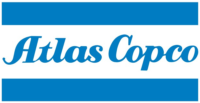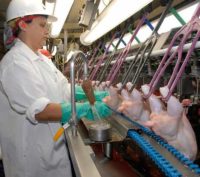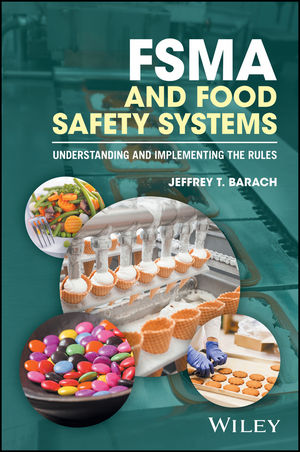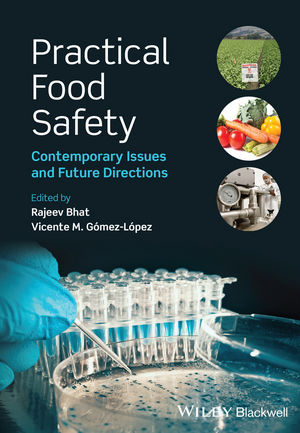Moving Forward with ISO 22000
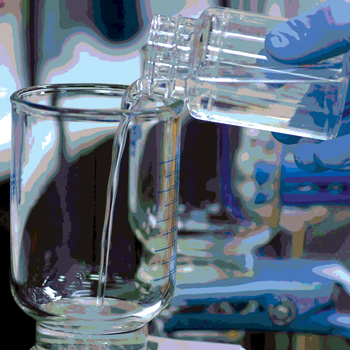
ISO has a mission to develop international standards that meet marketplace needs. To do this, it is developing the ISO 22000 family of standards (Table 1) through a subcommittee (SC17) of its Technical Committee 34 (food products). These are both auditable and guidance standards so that all organizations in the food chain can implement a state-of-the-art food safety management system (FSMS).

ISO requires that all standards must be reviewed on a 5-year cycle. This review is designed to ensure that each standard maintains relevance. During this time, the standard can be renewed without change, revised or withdrawn.
Since the 2005 publication of ISO 22000, SC17 has worked hard to develop additional standards that support ISO 22000: a guidance standard, a standard covering audit and certification bodies, a traceability standard and a new series of technical specifications that describe the prerequisite programs (PRPs) that are needed in either food chain categories or product sectors. The first of these, ISO TS 22002 – Part 1, for food manufacturers was published in 2009.
 At its meeting in September 2010, the subcommittee developed a framework document that describes a way to harmonize all of the PRP standards it is working on. The over-arching approach is to minimize duplication of standards, making it easier for stakeholders to use them to develop FSMSs (see sidebar, on the over-arching strategy for ISO 22000). Over the next few years, it is expected that most of the categories (Table 2) will be addressed. At the present time, the Argentinean delegation is chairing a working group to develop a PRP standard for food services. This standard will describe the PRPs that are needed to produce safe food in quantity food preparation, restaurants, retail food operations and catering areas. The French delegation has submitted a proposal, which is currently being voted on, to draft a PRP standard for production agriculture (crops and animals). Additionally, the U.S. has submitted a proposal to develop a new standard for aquaculture.
At its meeting in September 2010, the subcommittee developed a framework document that describes a way to harmonize all of the PRP standards it is working on. The over-arching approach is to minimize duplication of standards, making it easier for stakeholders to use them to develop FSMSs (see sidebar, on the over-arching strategy for ISO 22000). Over the next few years, it is expected that most of the categories (Table 2) will be addressed. At the present time, the Argentinean delegation is chairing a working group to develop a PRP standard for food services. This standard will describe the PRPs that are needed to produce safe food in quantity food preparation, restaurants, retail food operations and catering areas. The French delegation has submitted a proposal, which is currently being voted on, to draft a PRP standard for production agriculture (crops and animals). Additionally, the U.S. has submitted a proposal to develop a new standard for aquaculture.
Help Is on the Way
In 2007, ISO and the International Trade Centre (ITC) published ISO 22000, Food Safety Management Systems: Are You Ready? This book provides potential users with the basic information on ISO 22000.
Under the leadership of delegates from France and the U.S., SC17 is also working to develop an ISO handbook on How to Use ISO 22000. This handbook is intended to be used by organizations that are moving to implement ISO 22000. It is expected that the handbook will be finalized by October 2011.
The subcommittee will develop a Web site for users (both potential, current and regulatory), accreditation and certification bodies, reports on work in progress and case studies of organizations that have implemented ISO 22000. It is expected that a panel of 10 ISO 22000 experts will be formed to provide official interpretation of the standard.
Global Food Safety Initiative (GFSI) and ISO 22000
The GFSI completed the benchmarking process on two certification schemes that incorporate ISO 22000 and either PAS 220 or ISO TS 22002-1. The European Cooperation for Accreditation announced in October that they have fully accredited the FSSC 22000 food safety scheme. ANSI-ASQ National Accreditation Board has recently announced that they will have an accreditation program for FSSC 22000 completed before the end of 2010 and an accreditation program for Synergy 22000 completed in early 2011. The Standards Council of Canada has an established accreditation program for certification bodies working with ISO 22000 and has agreed to extend this program to cover FSSC 22000. It is expected that all of the provisional accreditations to both FSSC 22000 and Synergy 22000 will become full accreditations in the next few months. At the Copenhagen meetings, ISO reported that 13,881 organizations were certified to ISO 22000. It expected that this number will increase significantly when formal accreditation is granted to both FSSC 22000 and Synergy 22000.
Help Needed
ISO develops standards in a transparent, open manner. It seeks the inclusion of all stakeholders. Since the development of standards is a voluntary process, we are seeking individuals who would like to contribute to the process of developing food safety management system standards. For more information, please see the “Help Wanted” sidebar below.
Read sidebar: Over-arching Strategy for ISO 22000
John G. Surak, Ph.D. is the principal of Surak and Associates. He can be reached at jgsurak@yahoo.com.
Albert F. Chambers is the president of Monachus Consulting, a Canadian firm specializing in the provision of policy and communications advice to organizations in the agri-food industry. He can be reached at afchambers@monachus.com.
Resources:
ISO 22000:2005. Food Safety Management Systems: Requirements for Any Organization in the Food Chain. ISO: Geneva, Switzerland.
ISO 22002-1:2009. Prerequisite Programmes on Food Safety: Part 1: Food Manufacturing. ISO: Geneva, Switzerland.
ISO 22003:2007. Food Safety Management Systems: Requirements for Bodies Providing Audit and Certification of Food Safety Management Systems. ISO: Geneva, Switzerland.
ISO 22000. Food Safety Management Systems: An Easy to Use Checklist for Small Businesses: Are You Ready? ISO/ITC: Geneva, Switzerland.
FSSC 22000. The Food Safety Certification Scheme.
Synergy 22000. Synergy Global Standardisation Services in Switzerland.
ISO Survey on Certification Issues to Various Management Systems. ISO: Geneva, Switzerland.
Sidebar
Over-arching Strategy for ISO 22000
There were three original intents of ISO in developing ISO 22000.
1. ISO 22000 is an umbrella standard that describes the general requirements for FSMSs for all organizations in the food chain.
2. Specific requirements, typically PRPs for various categories (e.g., production agriculture, food processing, distribution, foodservice and food retail) would be described in separate standards. This series of standards is under the banner of ISO 22002.
3. ISO 22000 and ISO 22002 standards would be nonprescriptive. Thus, they would describe what the requirements are for FSMSs. The company that implements ISO 22000 is responsible for describing how will they meet the requirements of the standard(s).
Thus, the ISO 22000 management system recognizes that the most effective FSMS is one that is custom tailored for the organization.
Sidebar#2
Help Wanted
Both the U.S. Technical Advisory Group (USTAG to SC17) and the Canadian Mirror Group to SC17 are looking for individuals who want to provide input into the ISO Family of Standards that are being developed by ISO TC24 Subcommittee 17. Credentials include an understanding of how food safety applies to all parts of the food chain (i.e., standards developed by ISO TC34), a desire to provide input into the development of standards, an ability to work in spurts and when comments are needed by the Canadian or U.S. groups. It is important to submit comments on time, so that our countries can develop positions for international meetings. No compensation but the joy of working on international standards is provided.
For more information, please contact: Dr. Richard Cantrill, U.S. Secretariat to ISO TC34 (richard.cantrill@aocs.org) or Ms. Anne Caron, Canadian Secretariat to ISO TC34 (Anne.Caron@pwgsc.gc.ca).
Looking for a reprint of this article?
From high-res PDFs to custom plaques, order your copy today!




